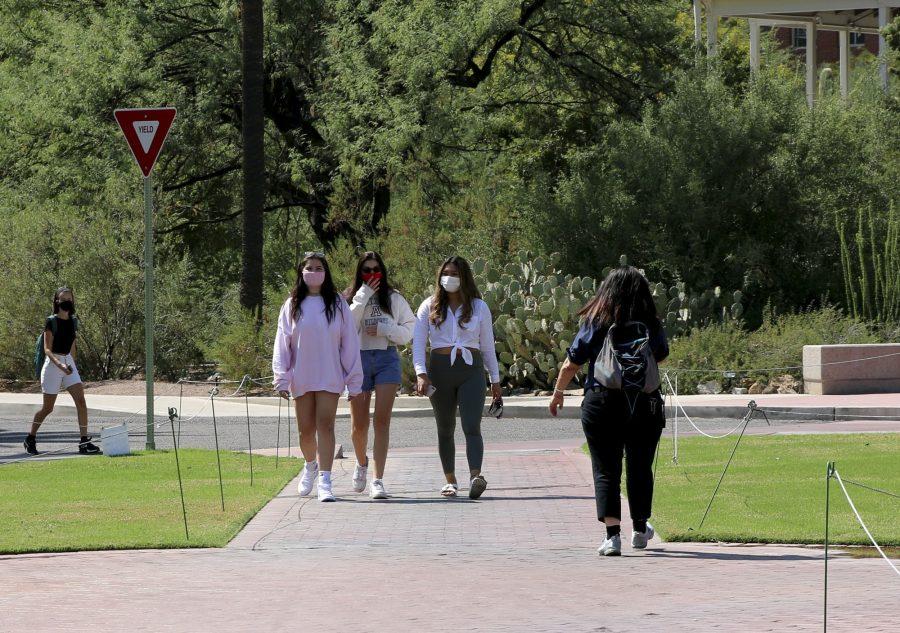Arizona schools will still be allowed to require masks on their campuses following a Sept. 27 superior court ruling, which resolved that the method the legislature used to incorporate its ban on mask mandates violated the state constitution.
The impacts of this decision and the surrounding debate can be seen across the University of Arizona campus as students and faculty alike navigate a return to in-person learning and adherence to COVID-19 protocols.
Sydney Harrington, a freshman majoring in criminal justice, expressed a sense of relief in the aftermath of this ruling, noting that mask requirements create a semblance of normalcy and class productivity that would otherwise not exist.
“I think that putting a stop to mask requirements would put a lot of us at risk for missing class time and a lot of students would end up in isolated dorms because not everyone at the university is vaccinated,” Harrington said. “It would have caused a loss in time for learning, which ultimately is what we are all here to do.”
Other students on campus shared this sentiment of relief and communicated feelings of increased safety as a result of mask mandates in classrooms.
“I really appreciate the continuation of the mask mandates around campus. I think that it is an extra step to keep students and faculty safe,” said Dylann Veres, a freshman majoring in special education.
Veres also expressed disapproval of the attempt by the state legislature to ban mask mandates on school campuses.
“I think that it would be chaotic and not fair, especially for staff and students who have medical conditions making them more likely to be affected by the virus,” Veres said.
Junior Caitlin Claggett, majoring in care, health and society, presented a different viewpoint on the mask mandates.
“I believe that, after this year, most will be happy to hear the news given the fact a majority of us are already vaccinated and did our part,” Claggett said of the prospect of the university’s mask policy being overturned. “In my opinion, students want things to go back to being as normal as possible, to have a regular college experience.”
Claggett echoed a popular student sentiment in noting that her top priority was maintaining a sense of normalcy on campus.
“It is frustrating for someone who is fully vaccinated to still be restricted in public settings, but if it is what’s necessary in order to have in-person classes, I am all for it,” Claggett said.
As some of the enforcers of the school’s mask policy, professors at the university can present an inside perspective on this issue. Some remain especially sensitive to any changes that might affect the way in which they conduct their classes.
Chad Westerland, associate professor of political science in the School of Government and Public Policy, concluded that as of right now, this decision does not impact the way in which the university will handle the pandemic.
“At the University of Arizona, this decision will change nothing in the short term,” Westerland said, citing commitment to the continuation of mask requirement policies at the three major in-state universities: the UA, Northern Arizona University and Arizona State University.
Westerland added that this legal controversy was just another addition to the uncertainty that has surrounded the return to in-person learning this fall semester.
“There’s uncertainty for everybody, students and faculty alike, as we are all getting used to being back in person,” Westerland said.
As political debates around mask mandates persist, students and faculty continue to adapt to new learning environments.
Follow Sam Parker on Twitter









